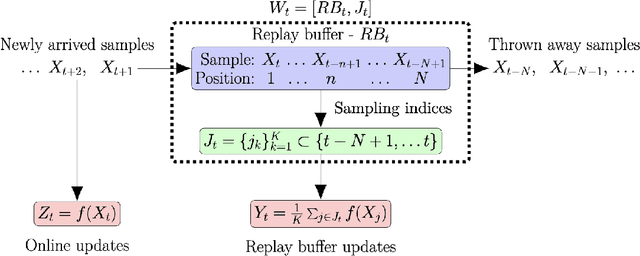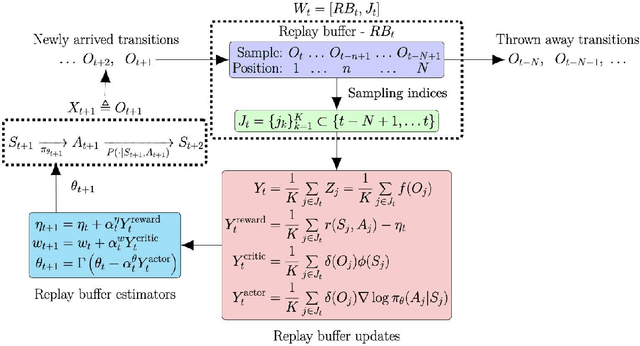Analysis of Stochastic Processes through Replay Buffers
Paper and Code
Jun 26, 2022

Replay buffers are a key component in many reinforcement learning schemes. Yet, their theoretical properties are not fully understood. In this paper we analyze a system where a stochastic process X is pushed into a replay buffer and then randomly sampled to generate a stochastic process Y from the replay buffer. We provide an analysis of the properties of the sampled process such as stationarity, Markovity and autocorrelation in terms of the properties of the original process. Our theoretical analysis sheds light on why replay buffer may be a good de-correlator. Our analysis provides theoretical tools for proving the convergence of replay buffer based algorithms which are prevalent in reinforcement learning schemes.
* arXiv admin note: text overlap with arXiv:2110.00445
 Add to Chrome
Add to Chrome Add to Firefox
Add to Firefox Add to Edge
Add to Edge